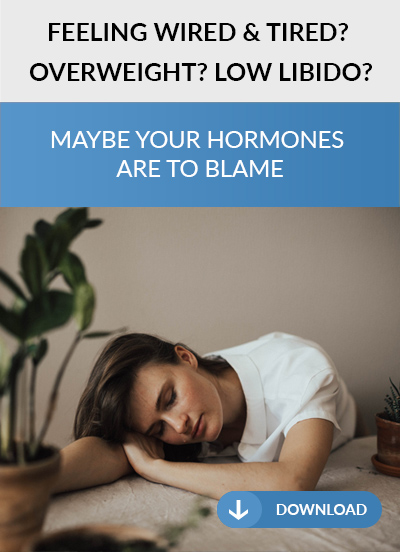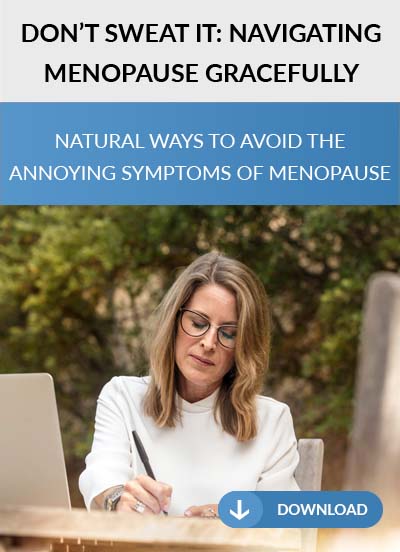So many people struggle to get a good night’s sleep. In fact, according to the American Academy of Sleep Medicine about 30% of Americans have problems sleeping!
Sleeping pills are available from your doctor, but they have side effects. You can develop dependence on the medication, and sometimes sleeping pills can cause complex behaviors like sleep-walking, sleep-driving and sleep-eating. Even though they may help you get to sleep (and some sleep is better than no sleep), the pills don’t give you a “normal” sleep – you don’t go through the various stages of REM sleep the way you would if you were sleeping naturally.
The vast majority of over-the-counter sleep aids typically contain an antihistamine, called diphenhydramine, which is the same ingredient found in Benadryl. Occasional use is ok, but regular use can actually predispose you to dementia!
Other side effects from over the counter sleeping pills include:
- Dry mouth
- Drowsiness
- Dizziness
- Trouble peeing (or not being able to pee)
- Blurred vision
- Confusion (in older adults)
So you can see that relying on medicines to help you to sleep isn’t the greatest longterm answer.
So what can you do????

5 tips to help you sleep like a baby
- Melatonin – This is a hormone that naturally signals the body to sleep. When you are exposed to light at night, your natural melatonin production is suppressed. It is ok to try melatonin (0.5-3mg) at bedtime to see if this helps your sleep. It is especially food for shift workers who have unusual sleep schedules and also for jet lag.
- Blue blocker sunglasses – Blue light waves at night are especially prone to shutting off melatonin. You are exposed from light bulbs, electric clocks, computer screens, the TV and your cell phone. You can turn on the “night shift” setting on your phone and computer to help reduce the blue light they give off. And please do your best to stay off screens in the evening. In addition, you can wear blue-blocker sunglasses, which filter our the blue light waves. Just wear them around your house after the sun goes down, and you’ll likely find that it is easier to fall asleep and you’ll get a better quality of sleep. (Fun fact: campfires, fireplaces and candles don’t give off much blue light)
- Light therapy. In addition to avoiding blue light at night, another great idea is to get natural sunlight in the morning! This helps your brain know that it is daytime, so you can be more alert, and also helps set your natural day/night circadian rhythm (which gets pretty mixed up in our modern world). In the winter, when morning sunshine is harder to come by, you can use a light box in the morning for 10-15 minutes while you drink your coffee. This type of lamp gives off full spectrum light (like the sun) to help reset your circadian rhythm (and help you sleep at night). Another helpful side effect, is that the lamp can help prevent seasonal affective disorder.
- Weighted Blanket – This type of blanket is filled with glass or plastic beads, so it feels heavy and provides gentle pressure, like being held. It helps to cut down on tossing and turning, and many people report having better quality sleep (although we don’t have much research on this just yet). The weight of the blanket should be about 10% of your body weight, so if you weight 150lbs, you should choose a 15 pound blaket. This is not recommended for small children due to concern about suffocation.
- Cooling mattress pad – This one could save marriages! In my house, my husband likes arctic temperatures, but I’m freezing and miserable. You can get a mattress pad that is temperature controlled (it can warm OR cool). It’s possible to cool one side of the bed, and leave the other alone. Yay! No more fights over the thermostat! While this is a great idea, it is expensive (there are different brands available, and they are typically hundreds of dollars). But cheaper than a divorce 😉
Sleep is important!
Your brain heals at night, and lack of sleep is a major promoter of weight gain and chronic disease. Getting a good sleep is very important to your health! A couple of other quick tips:
Hormone problems commonly cause sleep problems. Thyroid issues, perimenopausal and menopausal hormone changes, and cortisol problems can all prevent you from sleeping soundly. Balancing your hormones can be an important way to get back to sleep.
Keep electronics (especially those with WIFI) out of your bedroom. Mounting evidence suggest that electromagnetic frequencies from these devices may interfere with sleep in some people. You can turn off your router, put your phone on airplane mode overnight, or just keep them out of your room altogether.
If you have sleep apnea, none of these suggestions will be completely successful. It is very important to get a diagnosis and the proper treatment. If your spouse tells you that you snore or stop breathing periodically in the night (or if you have any suspicion at all) please get tested.
Hope these tips were helpful!
Sleep tight!
Dr Deb





